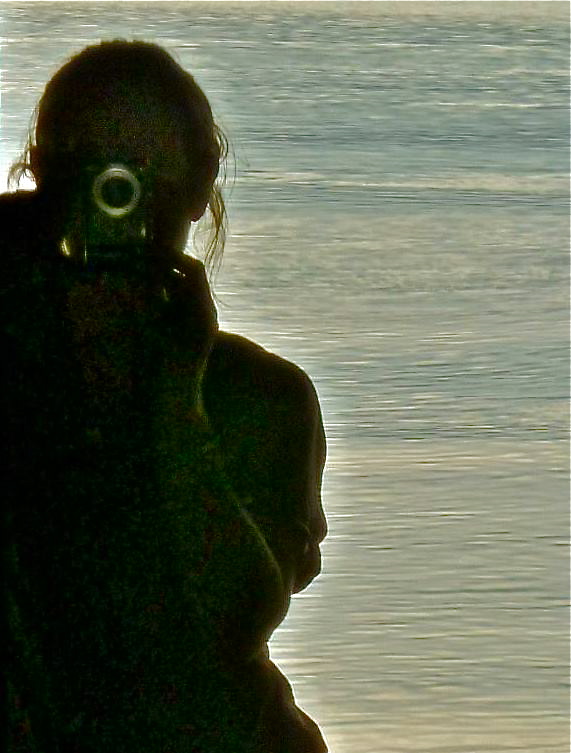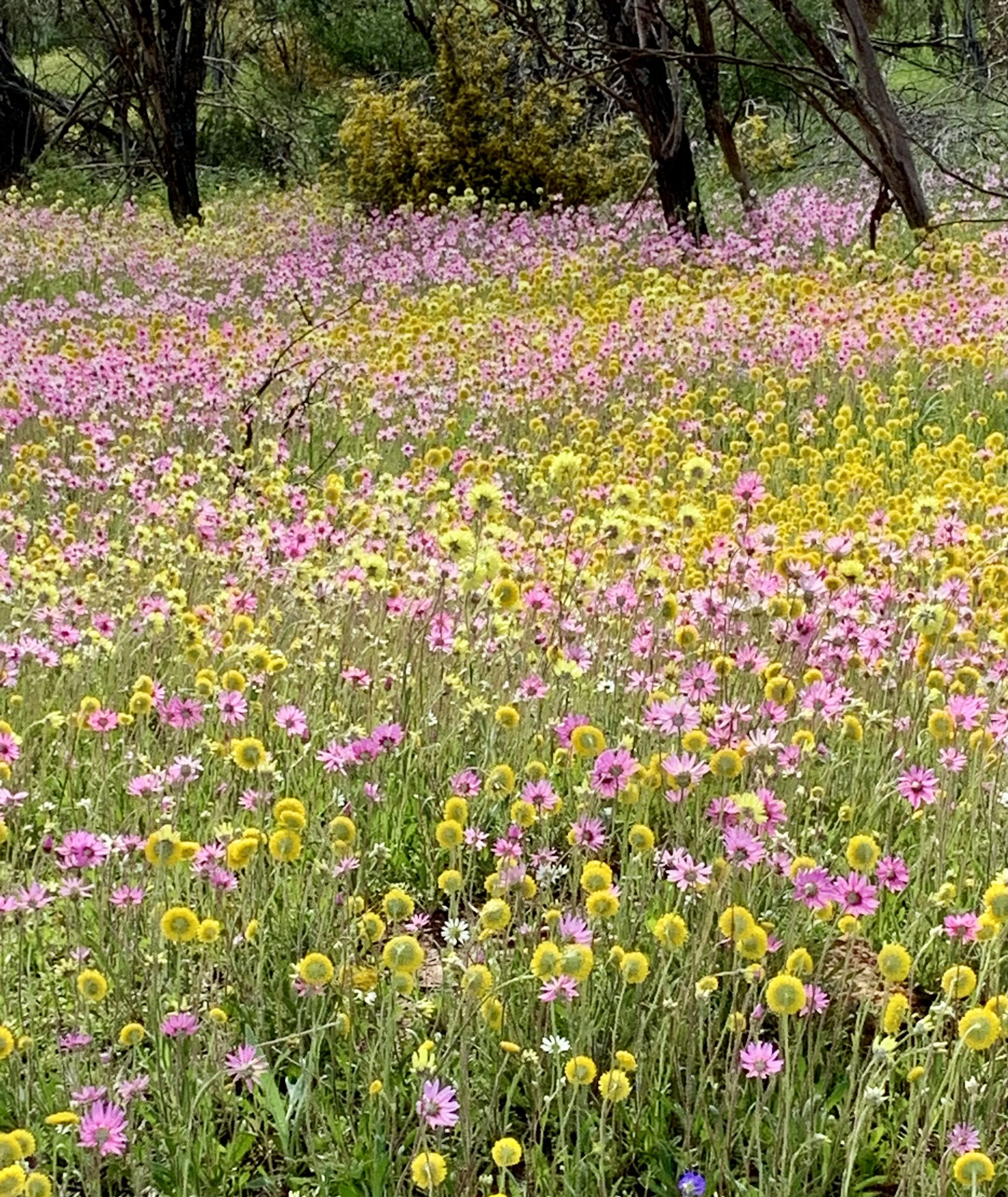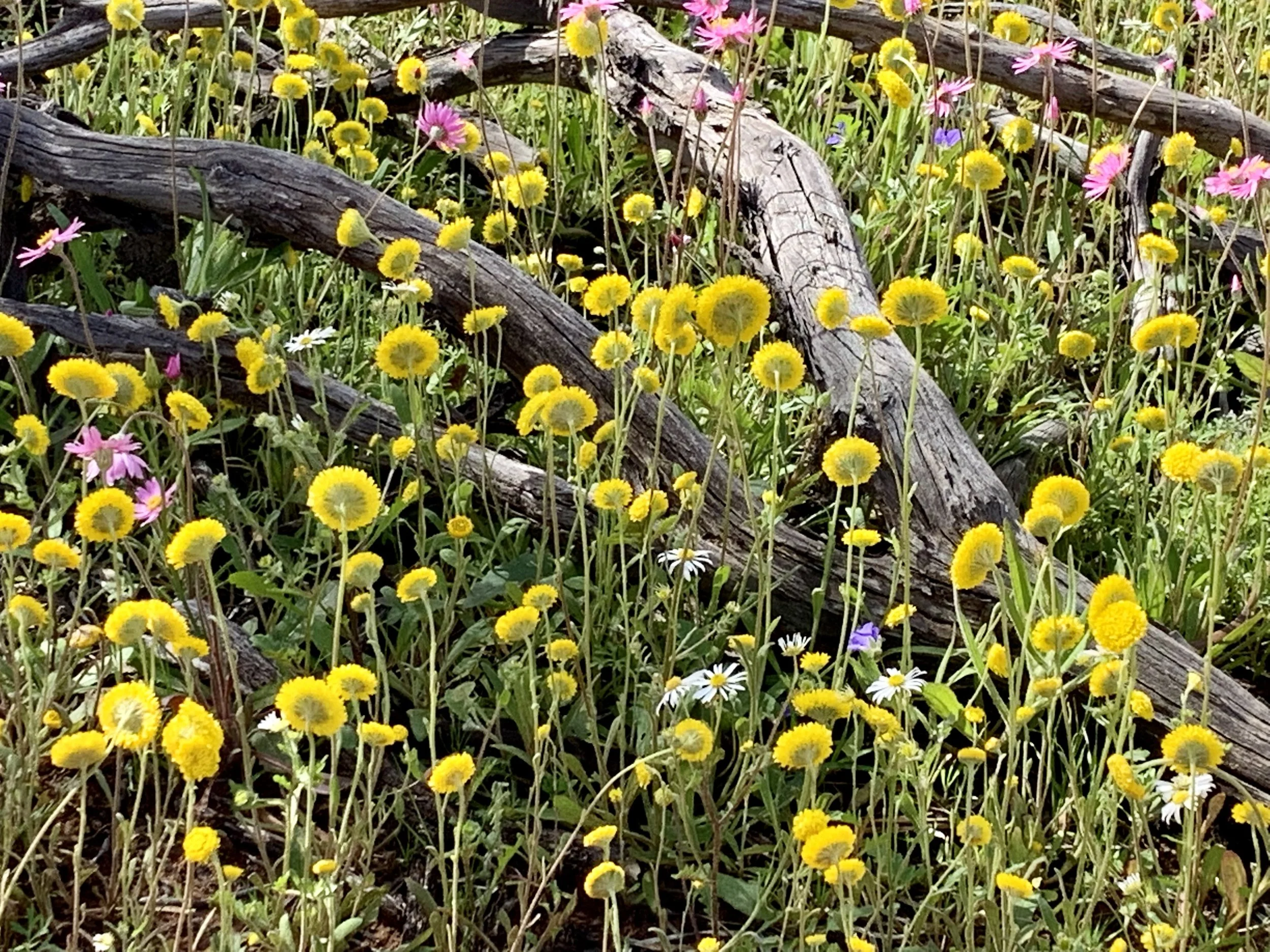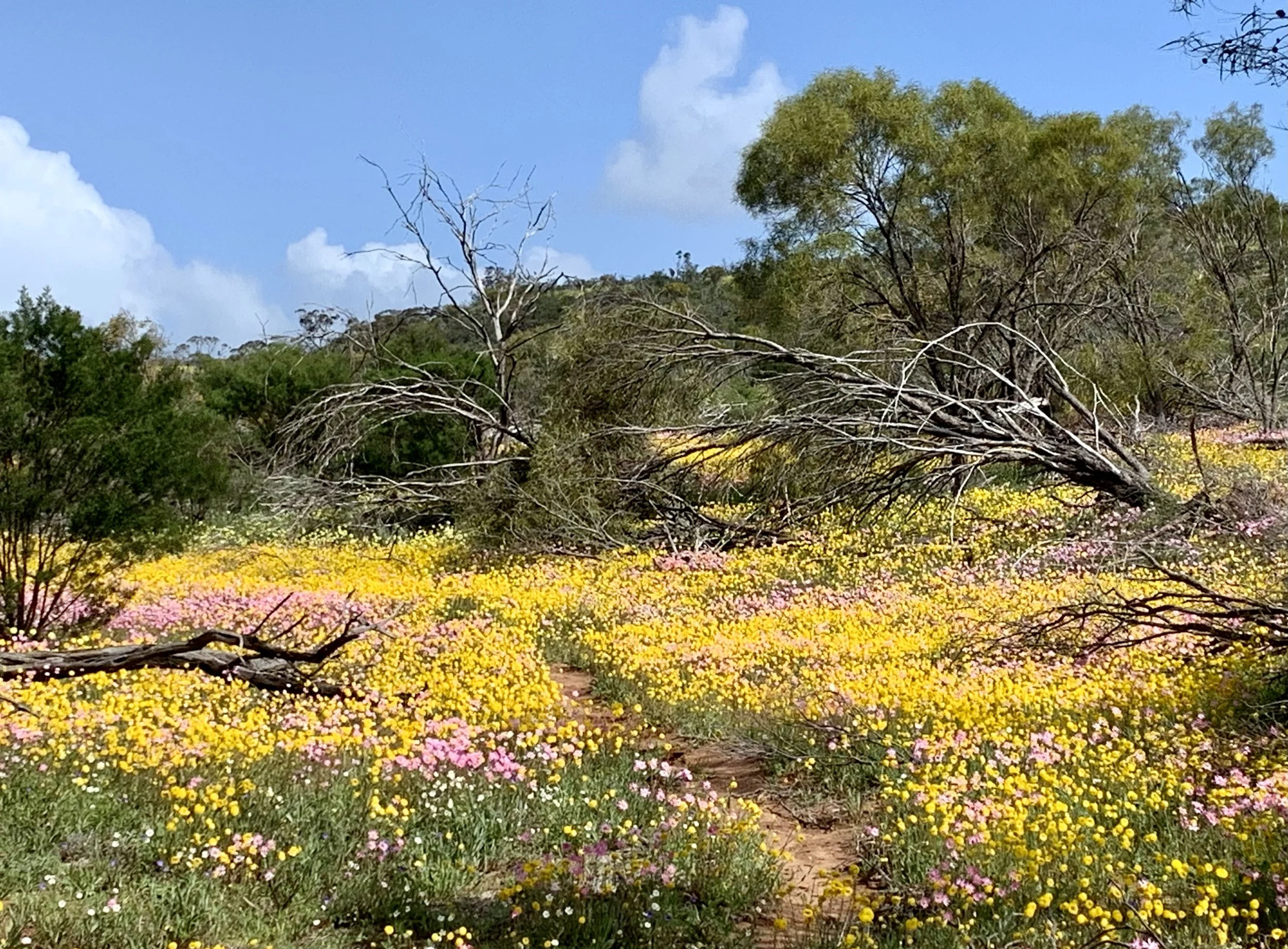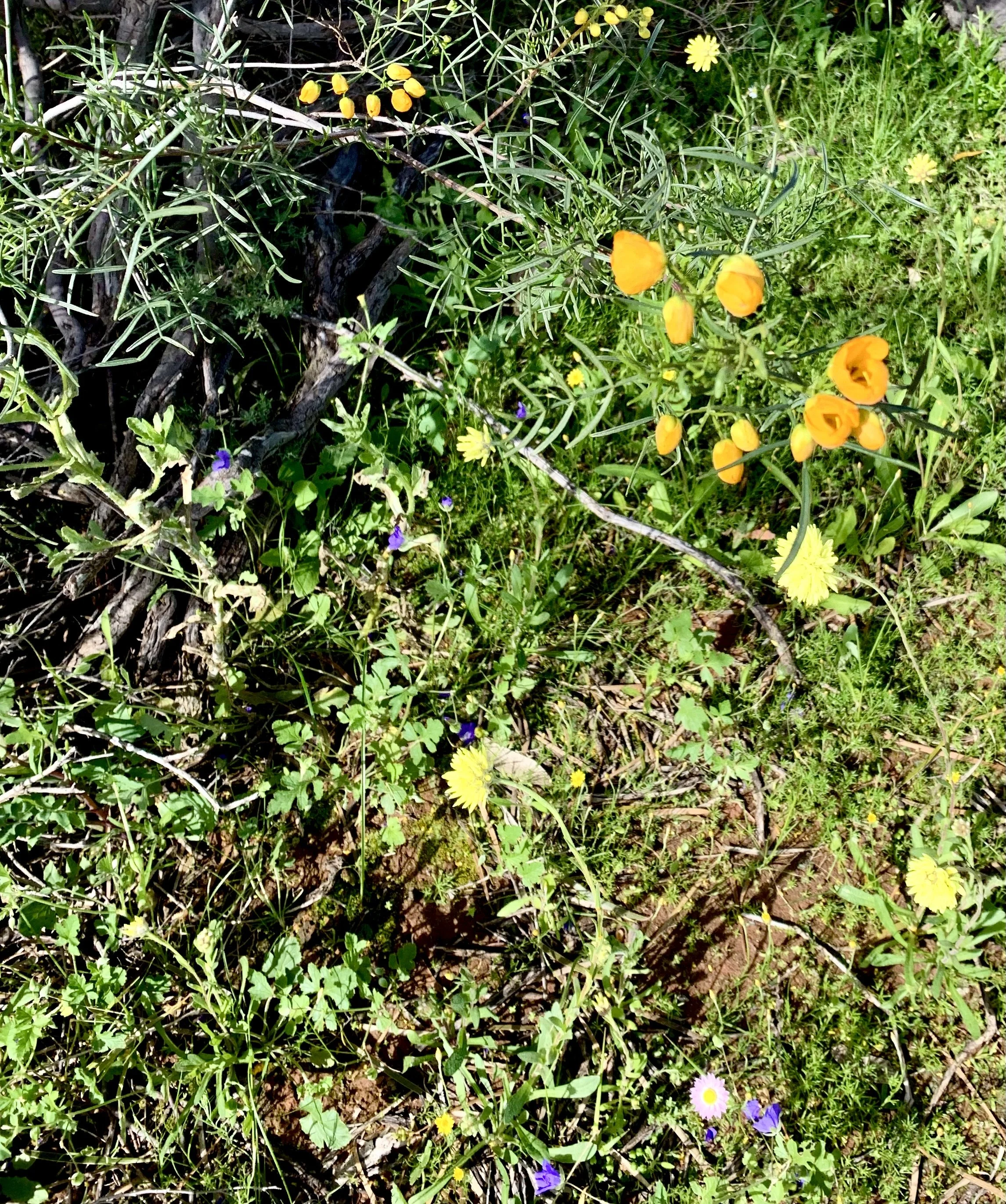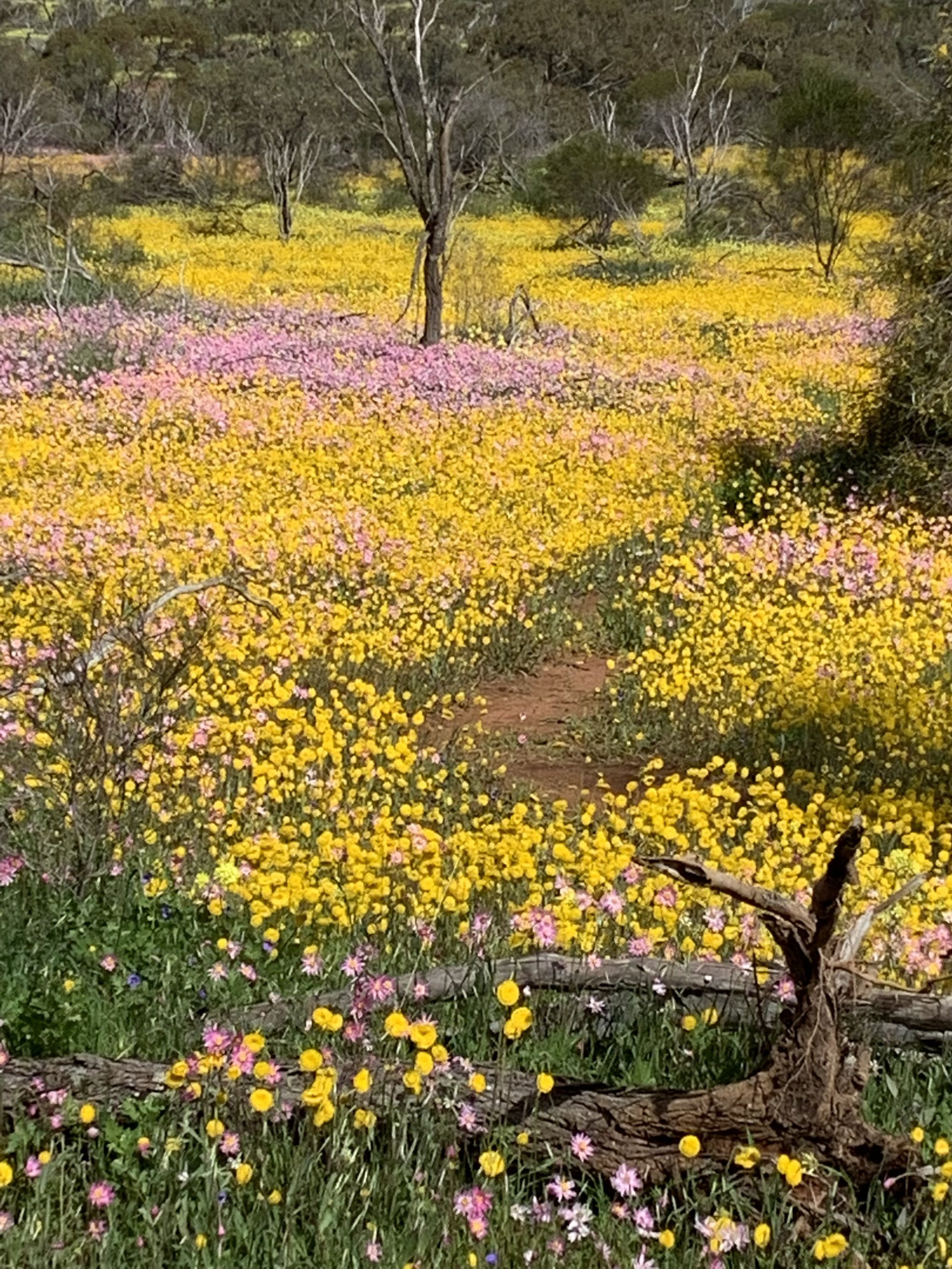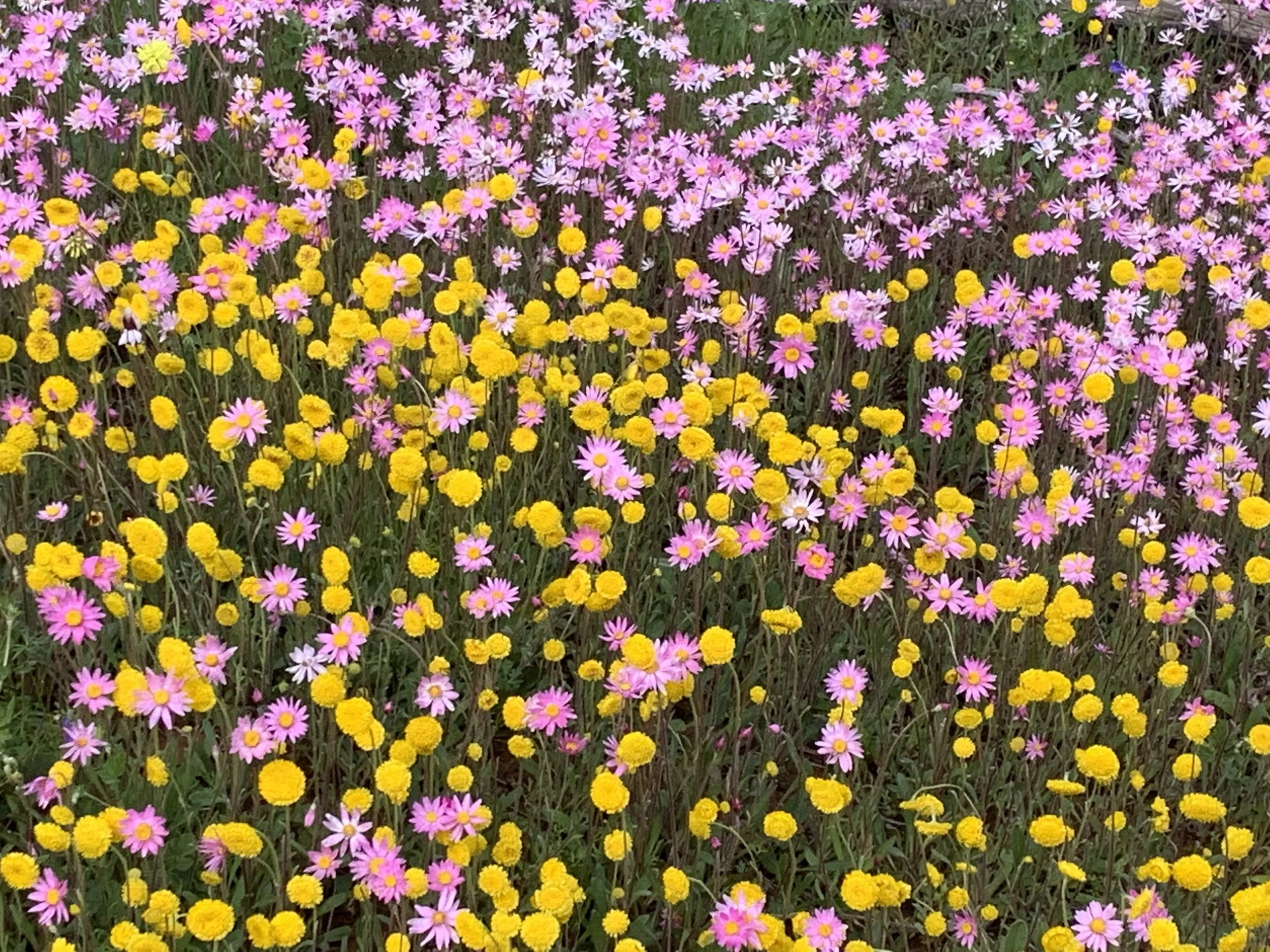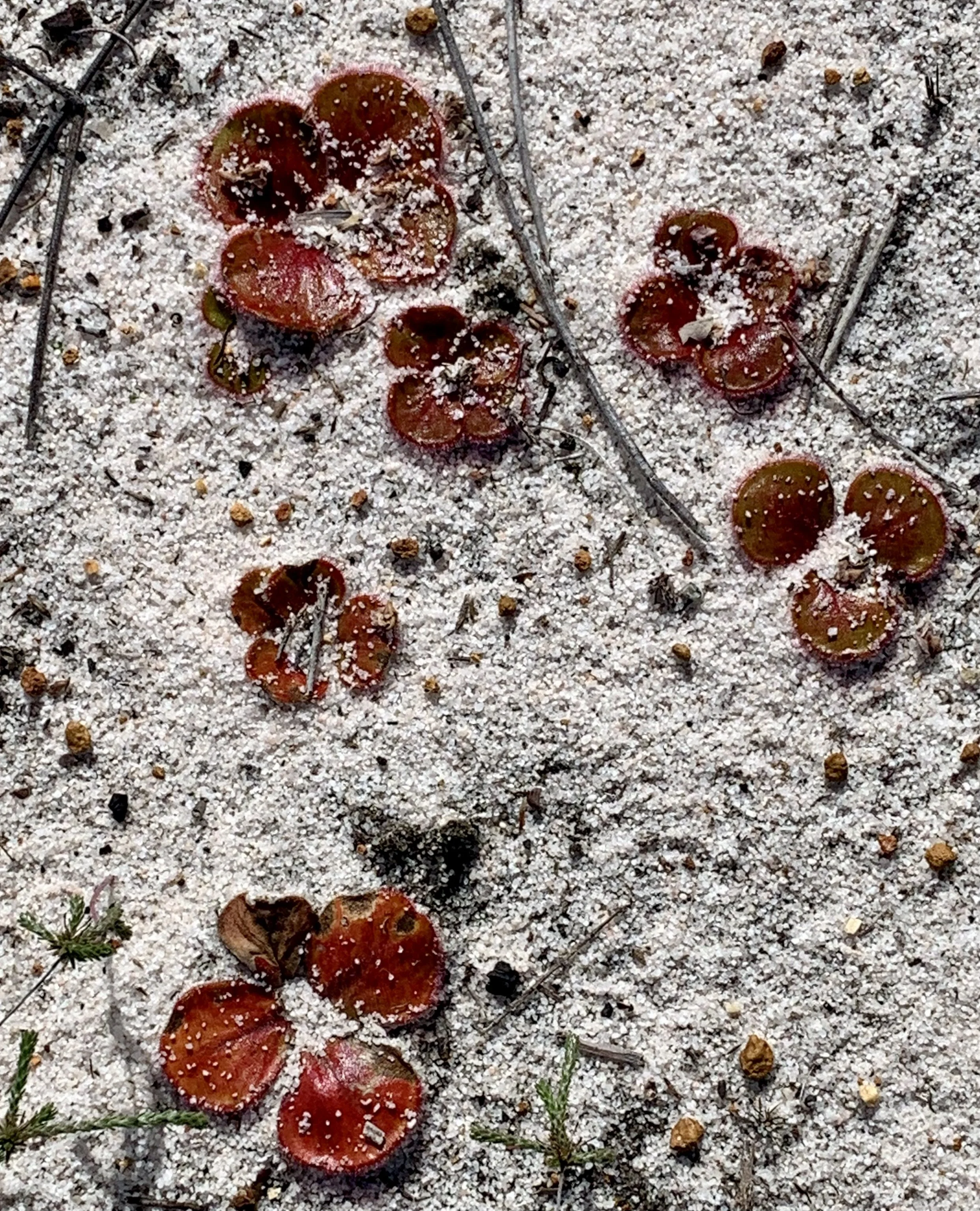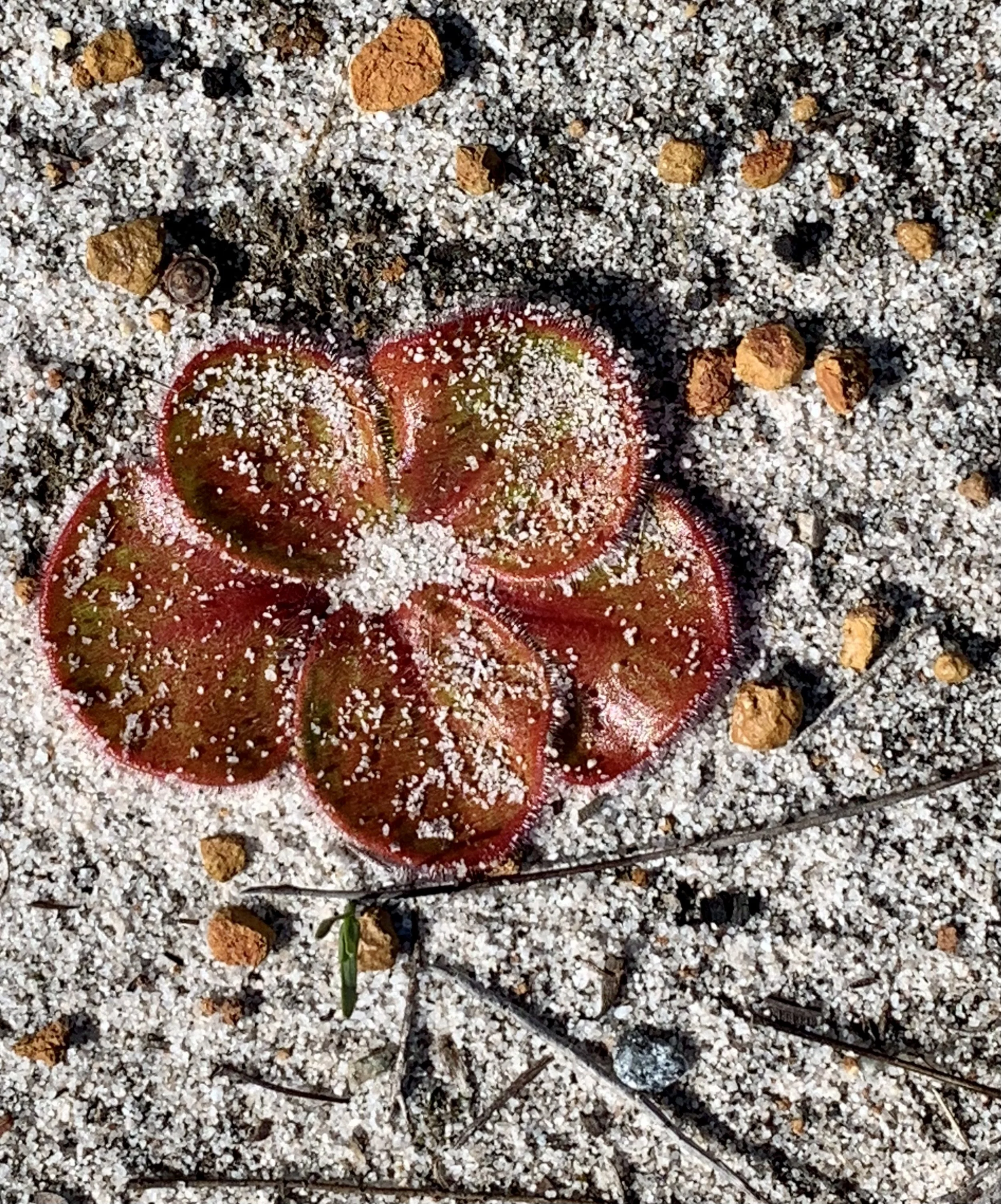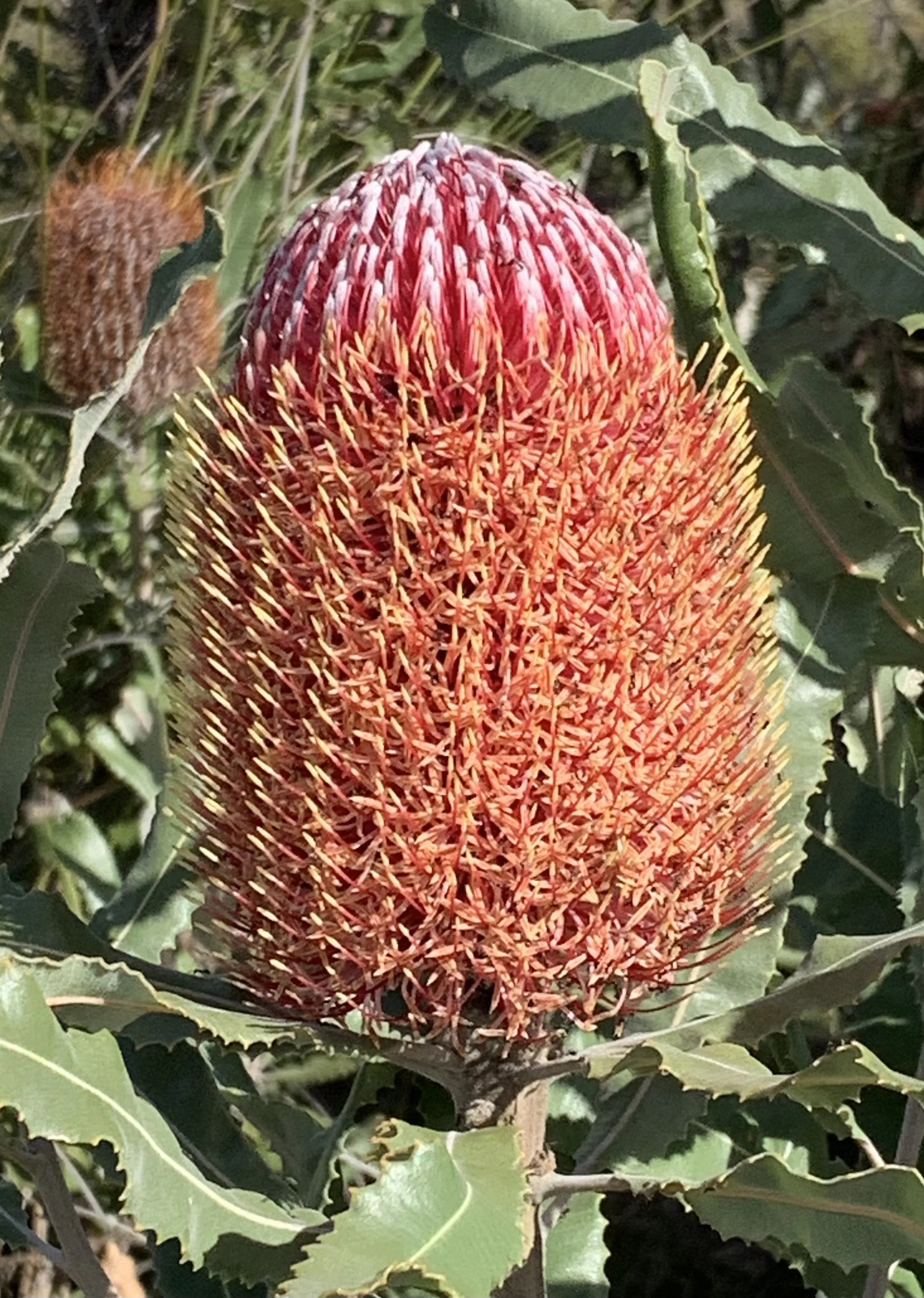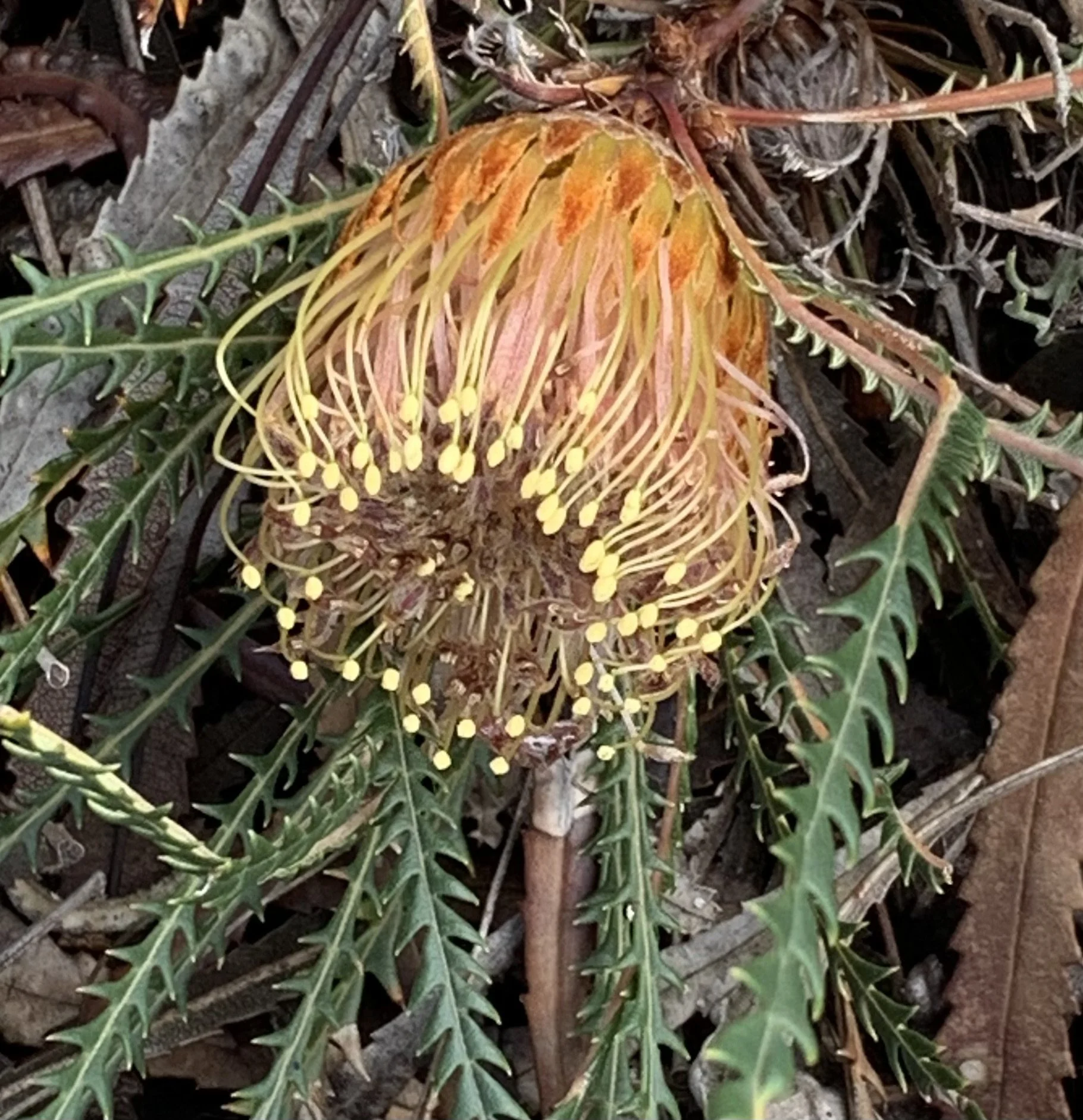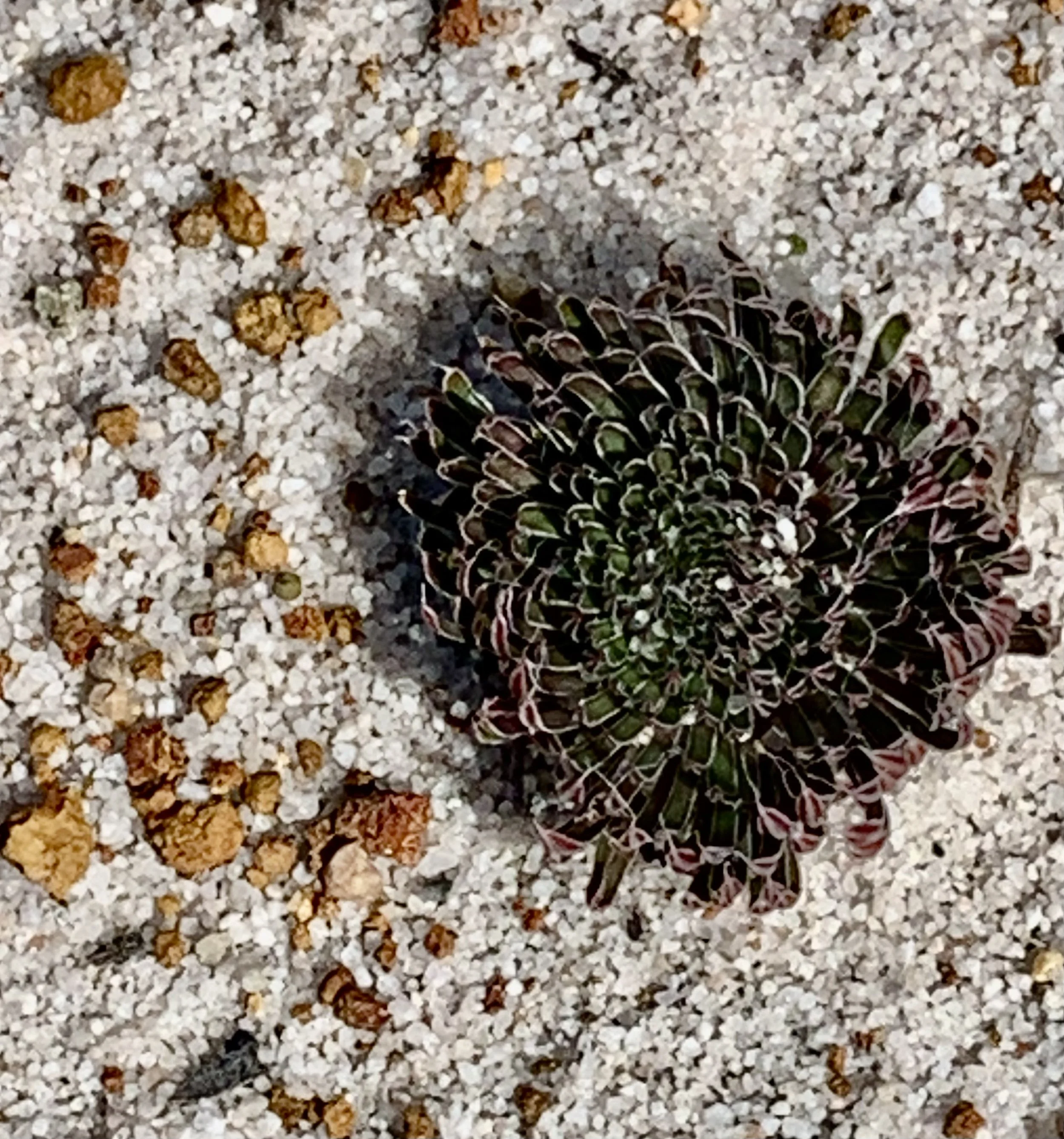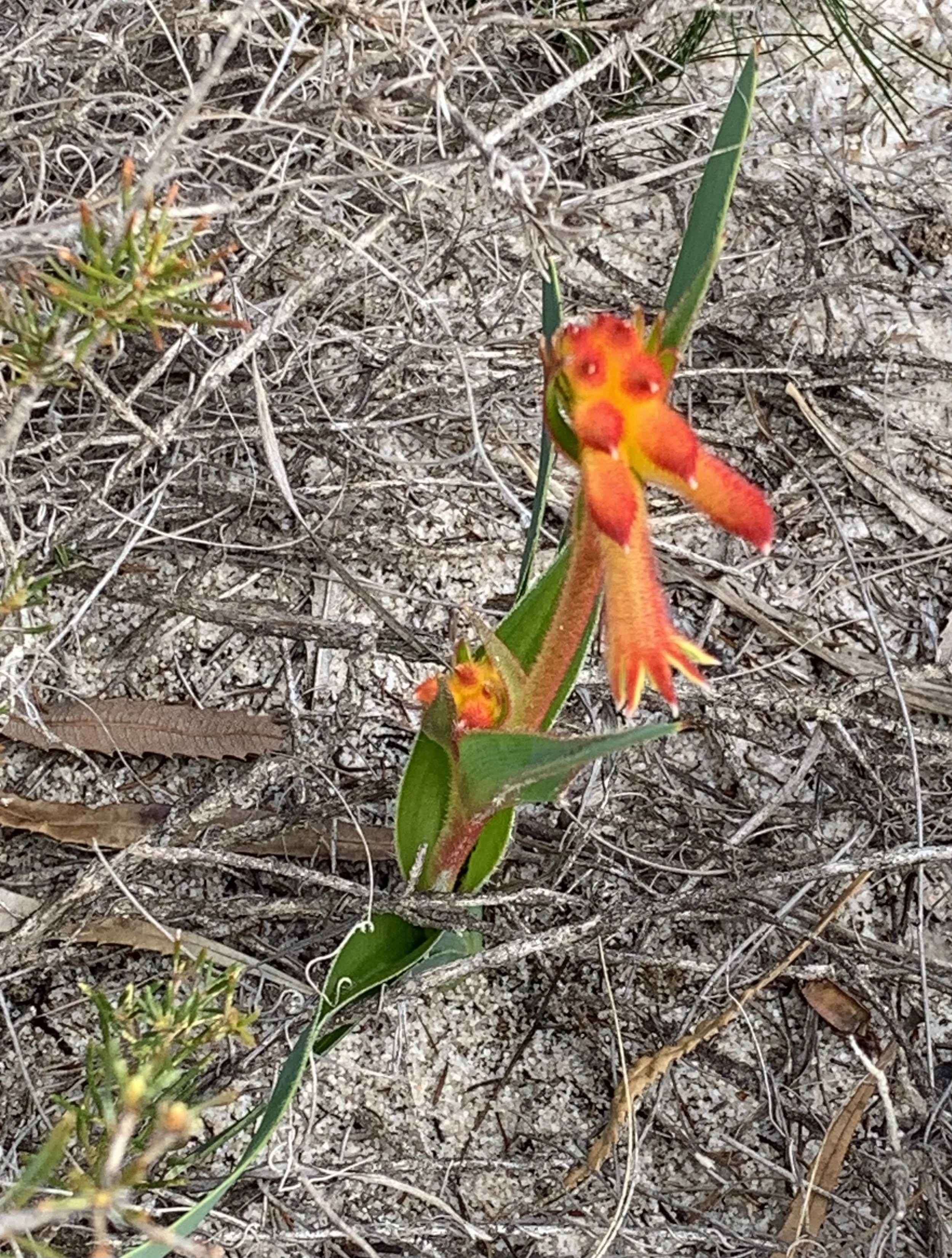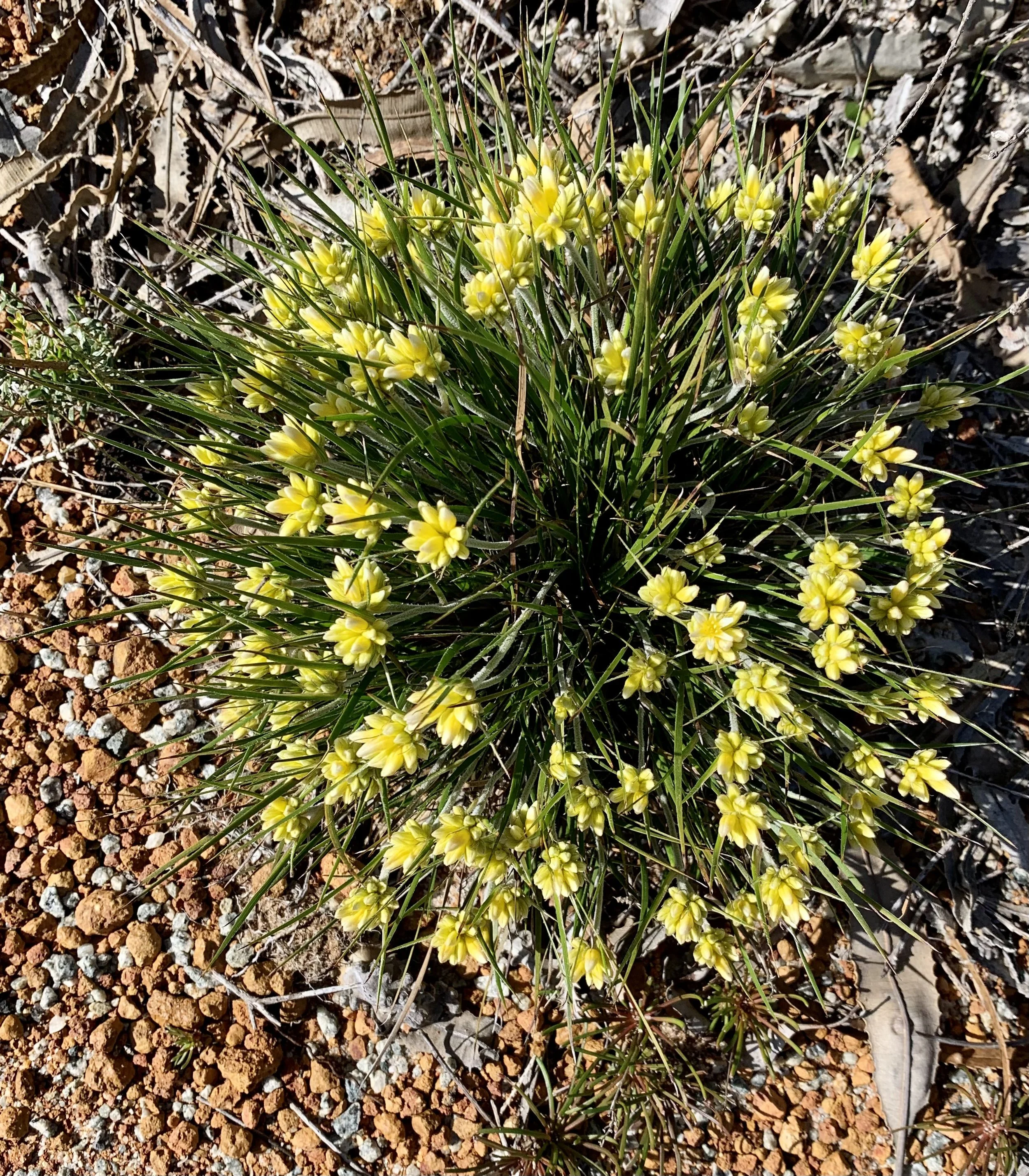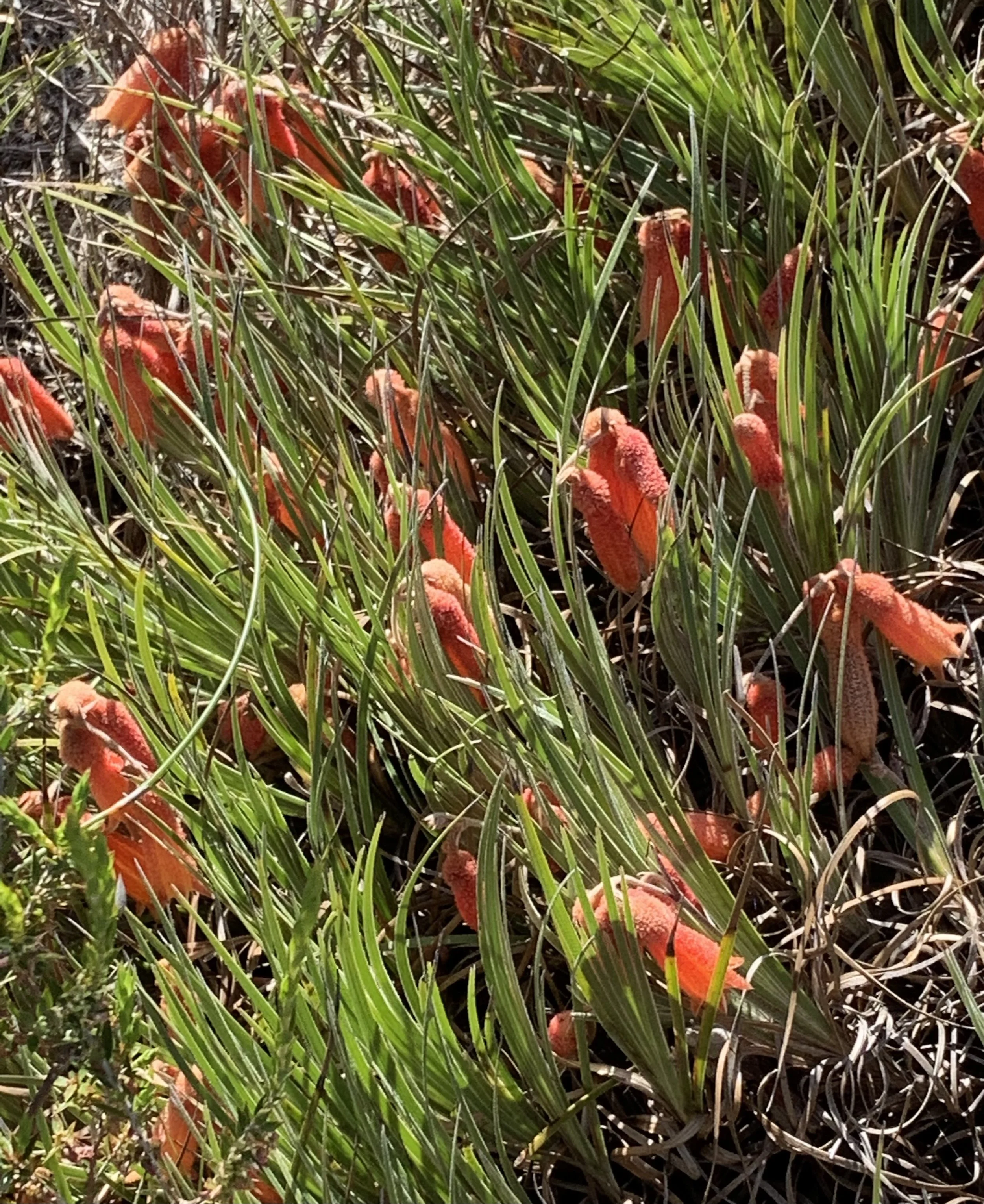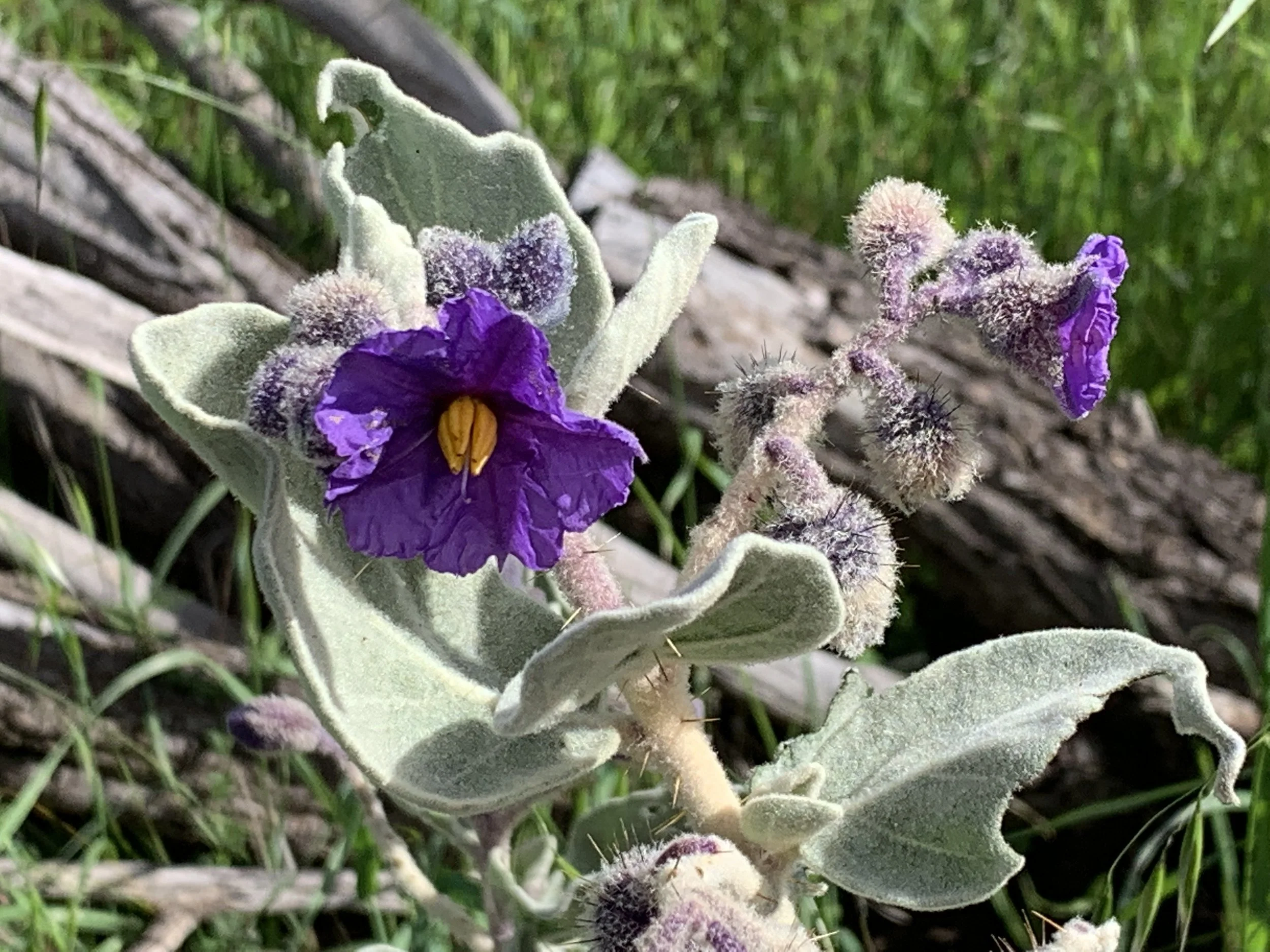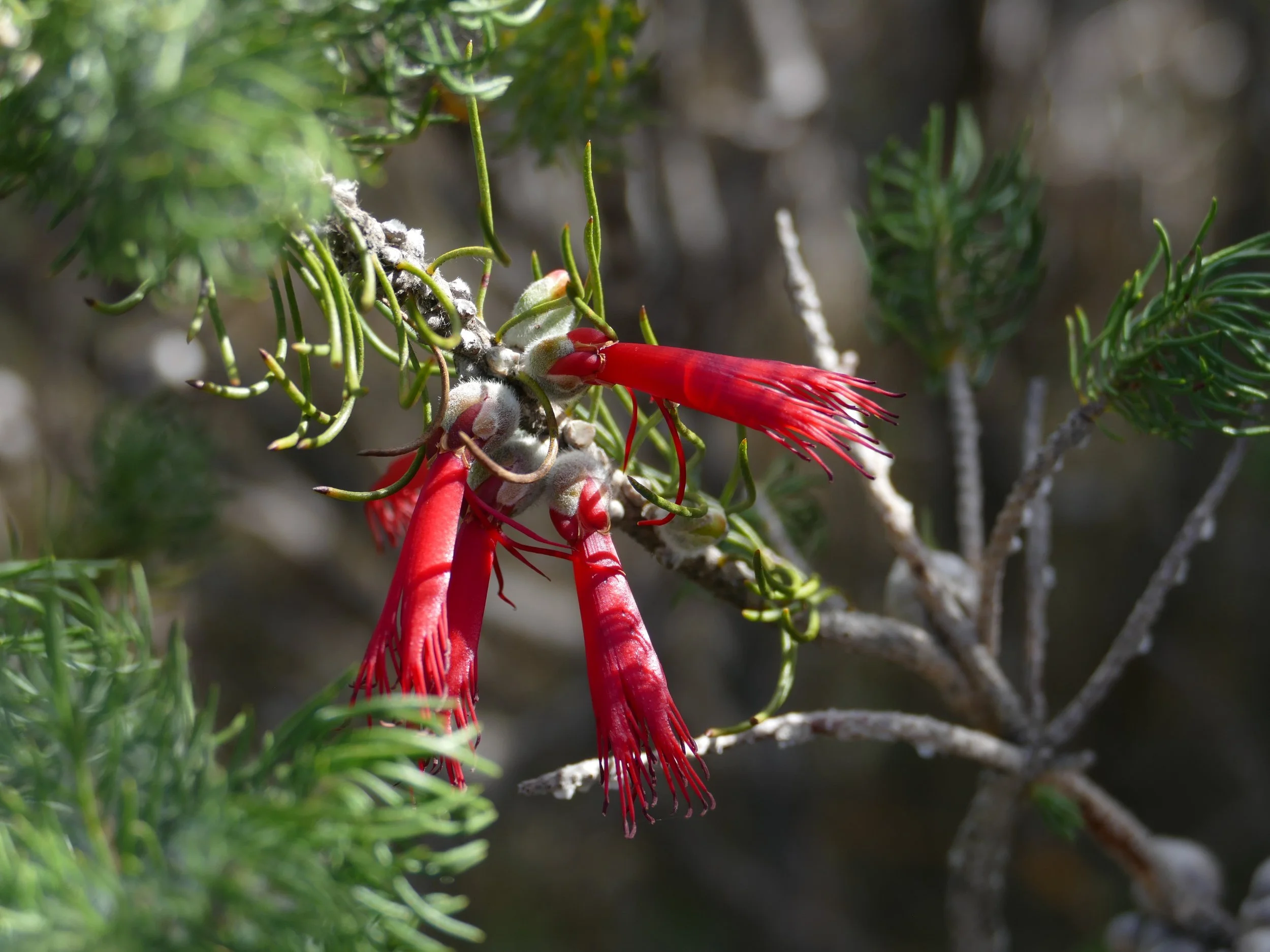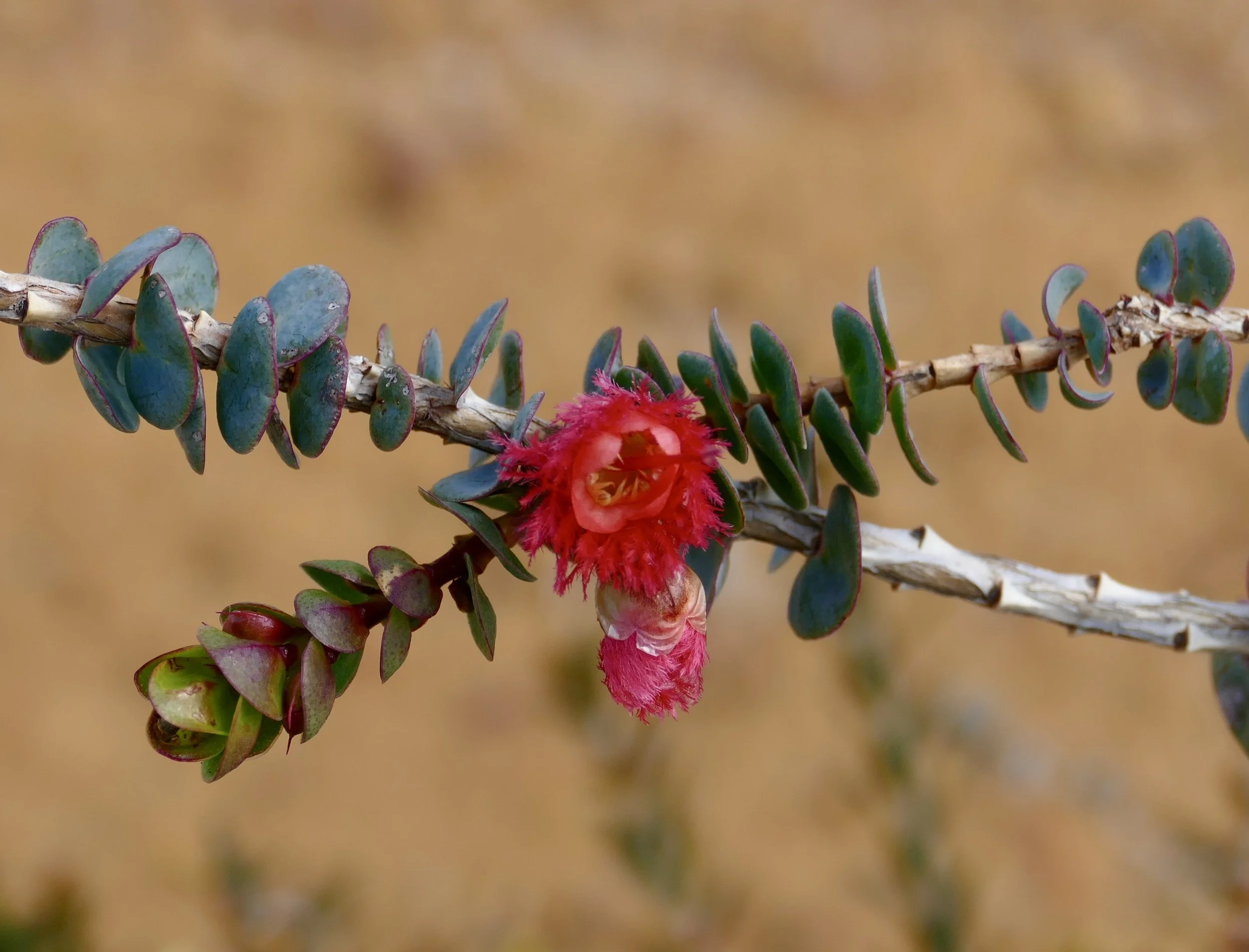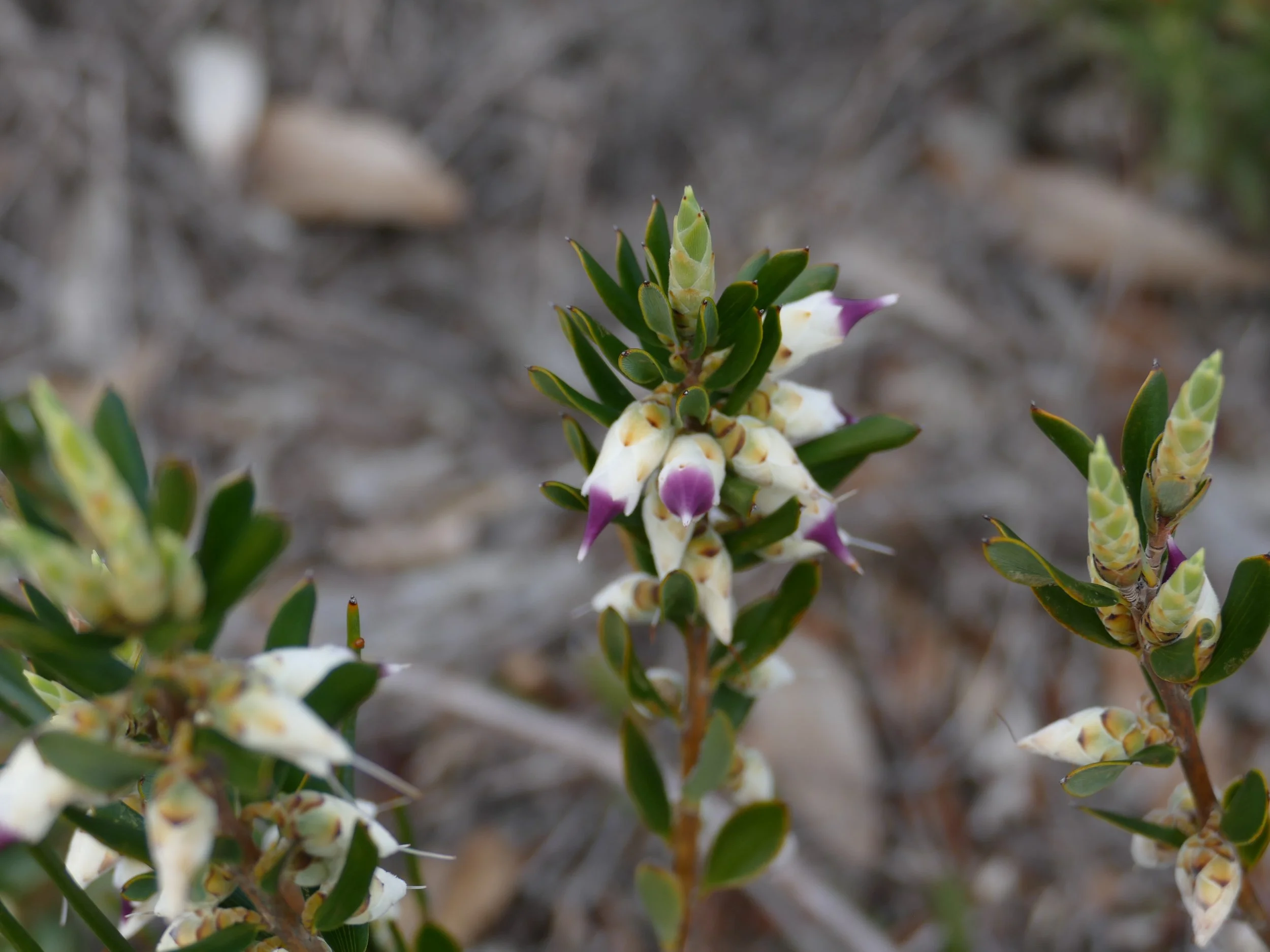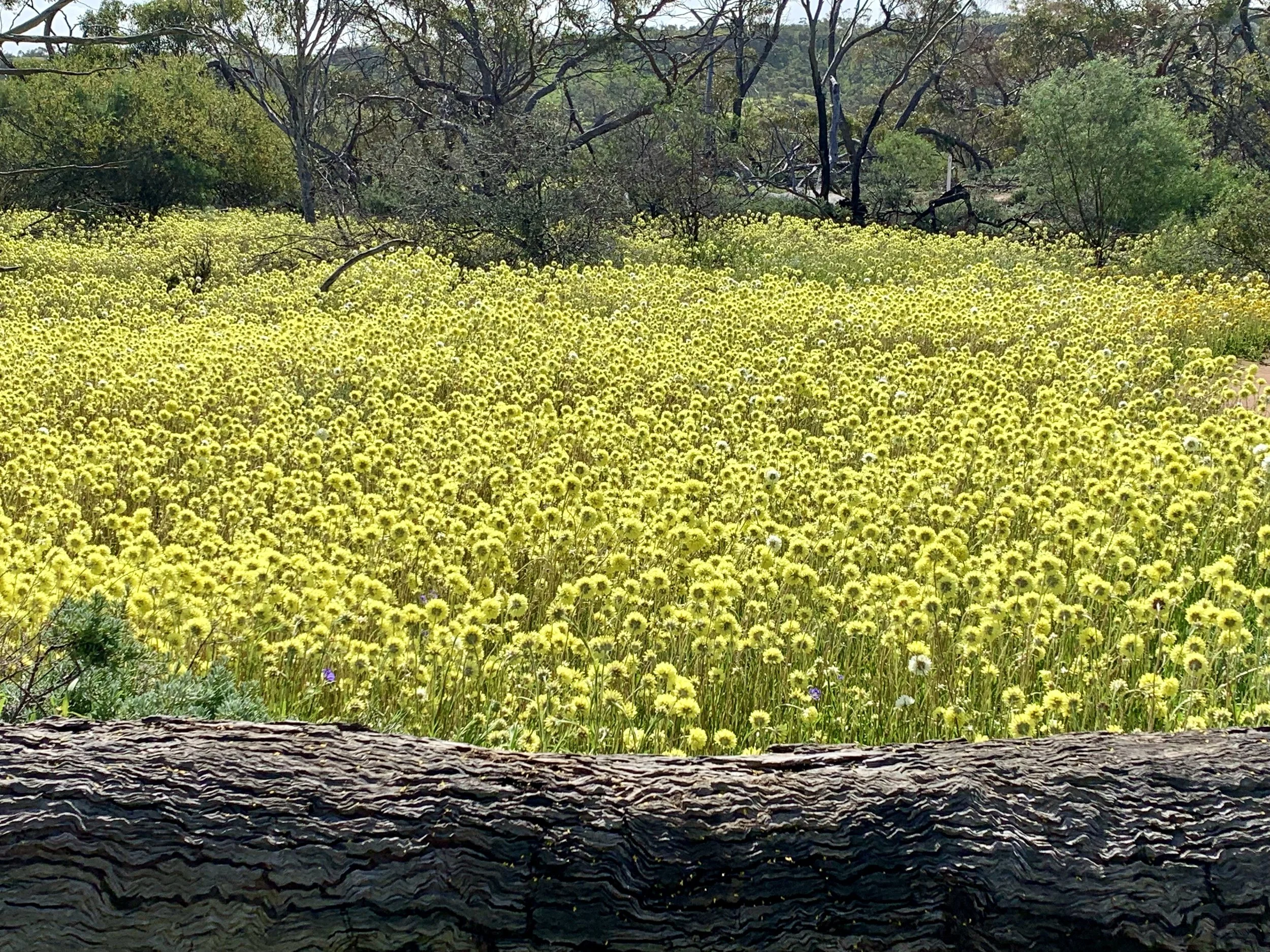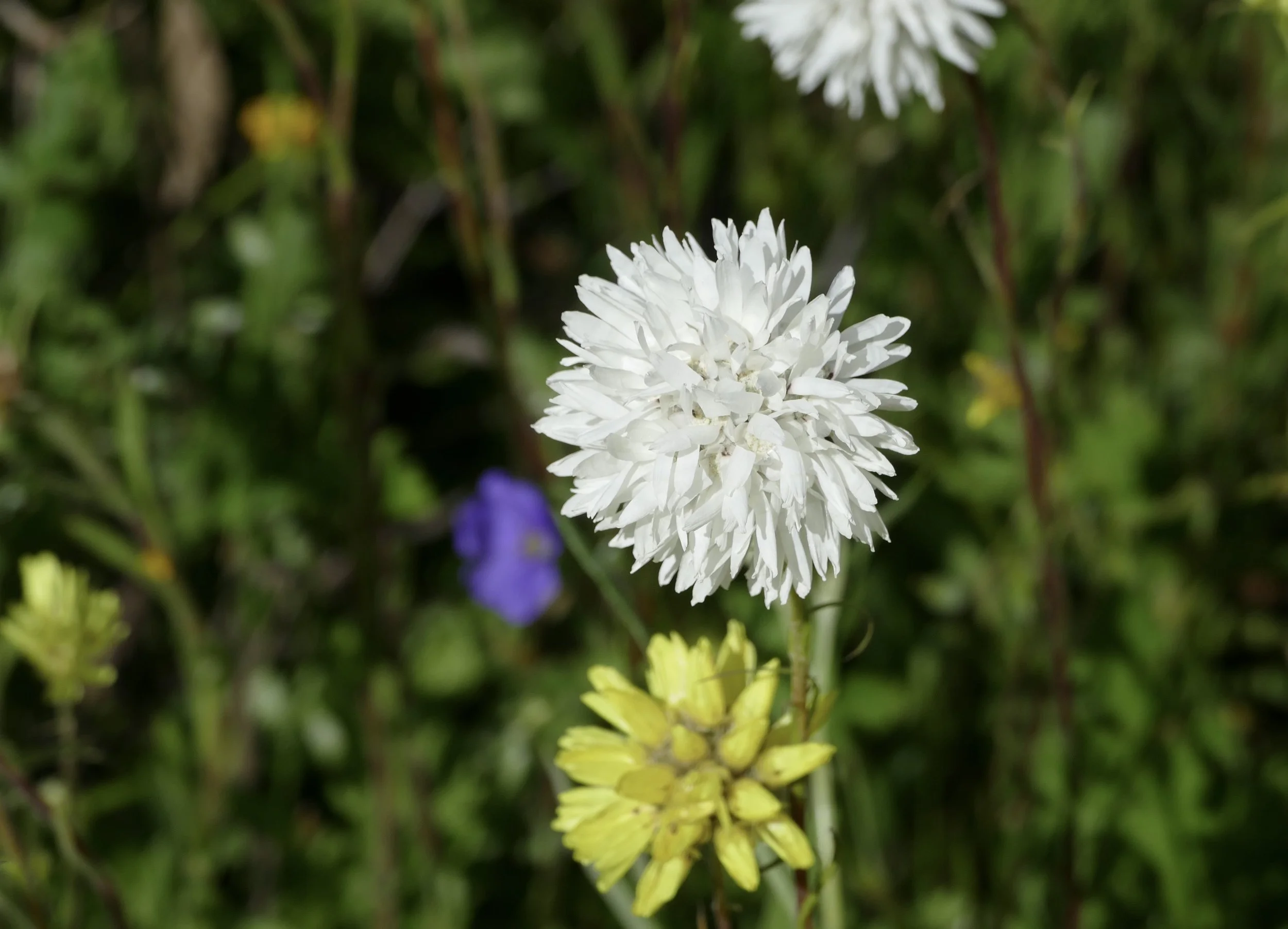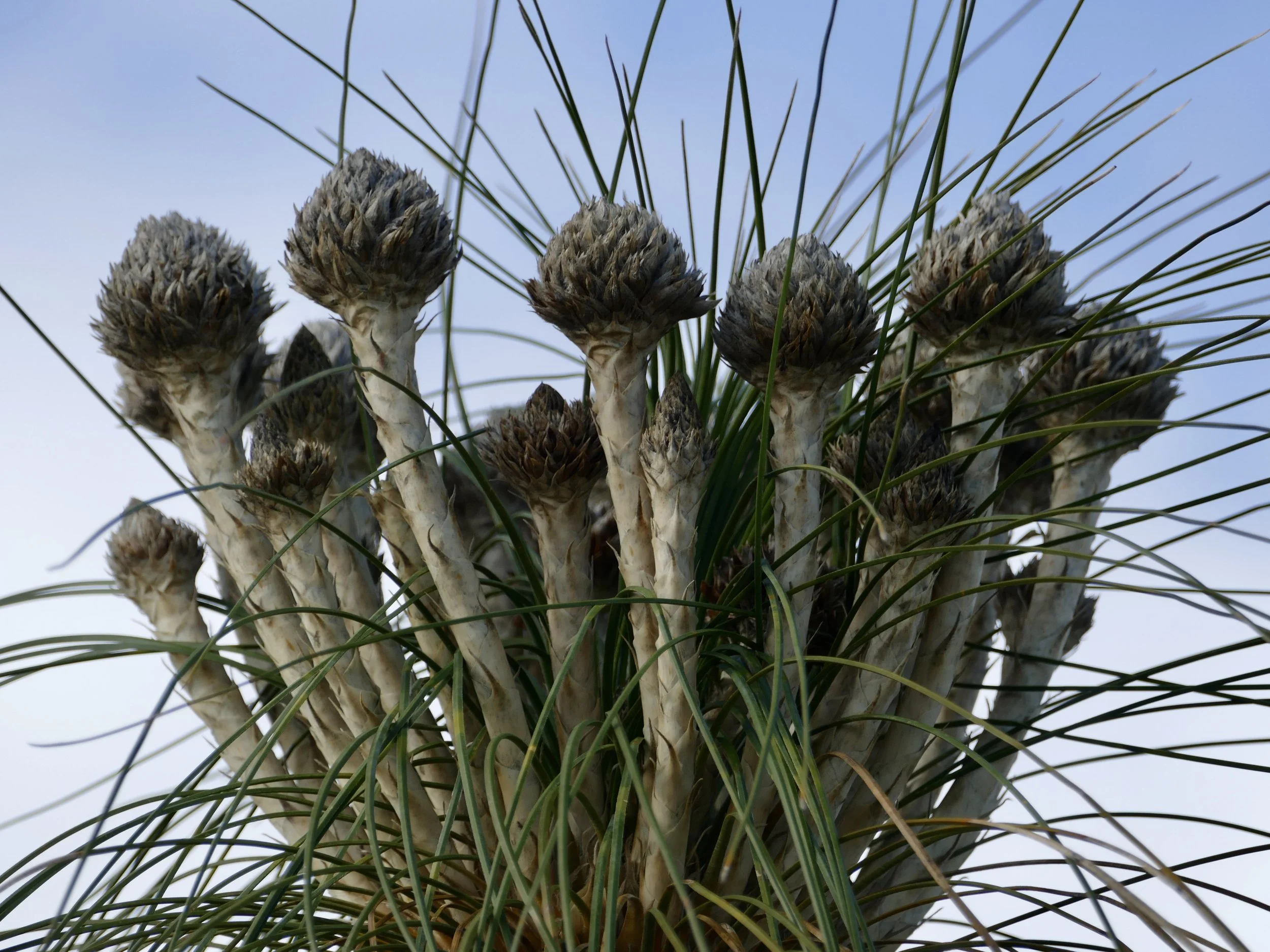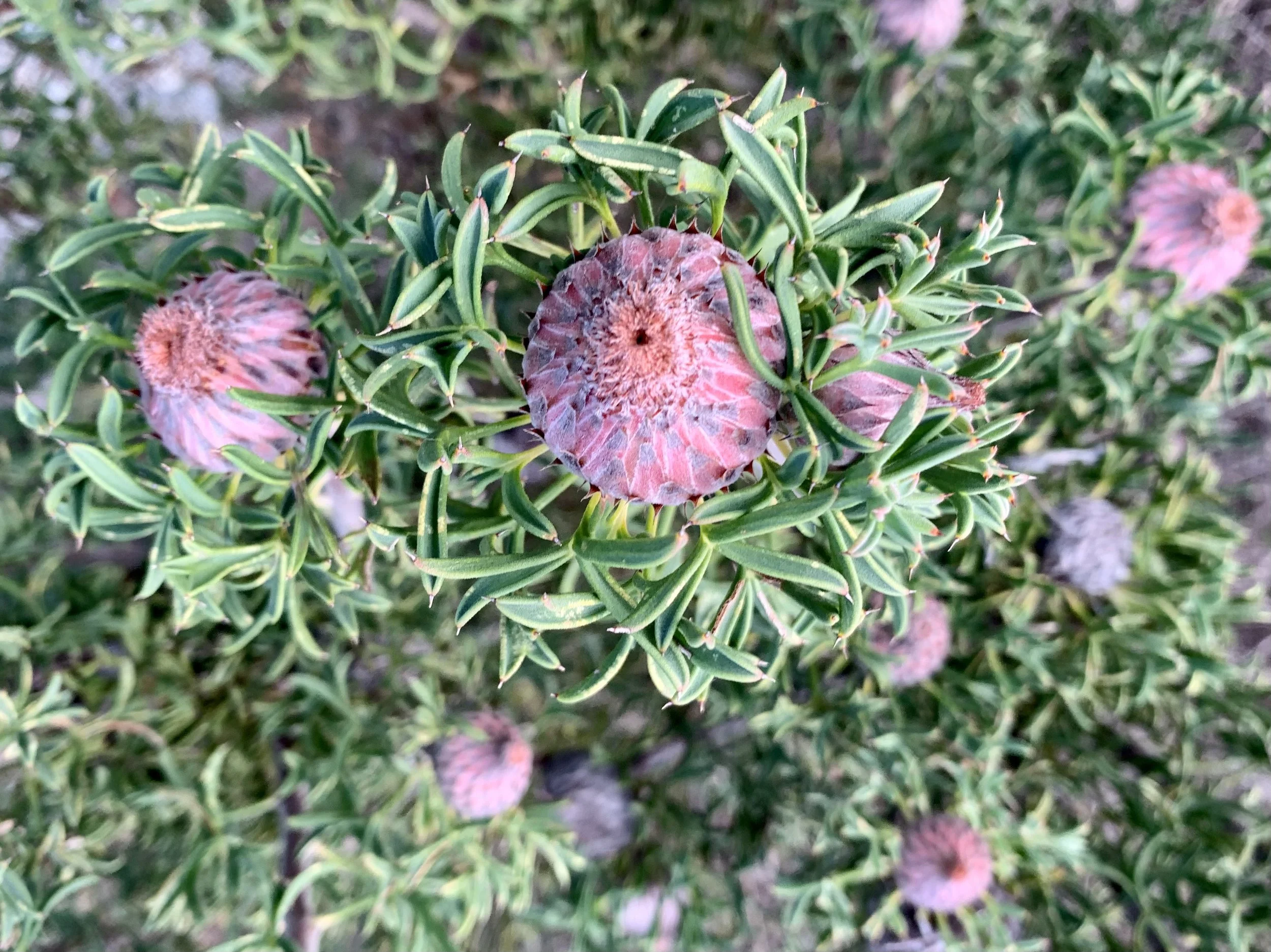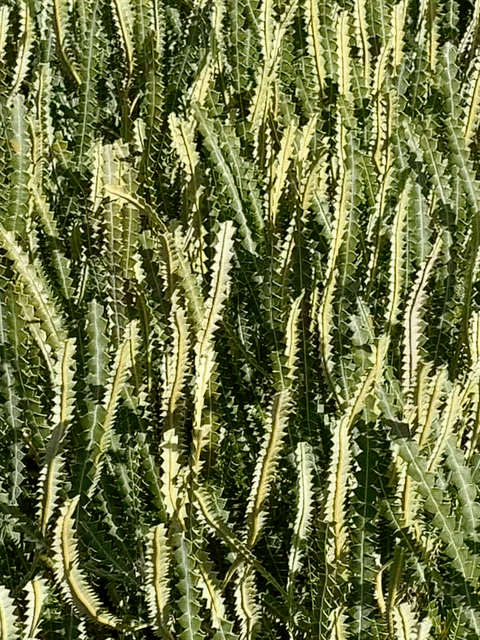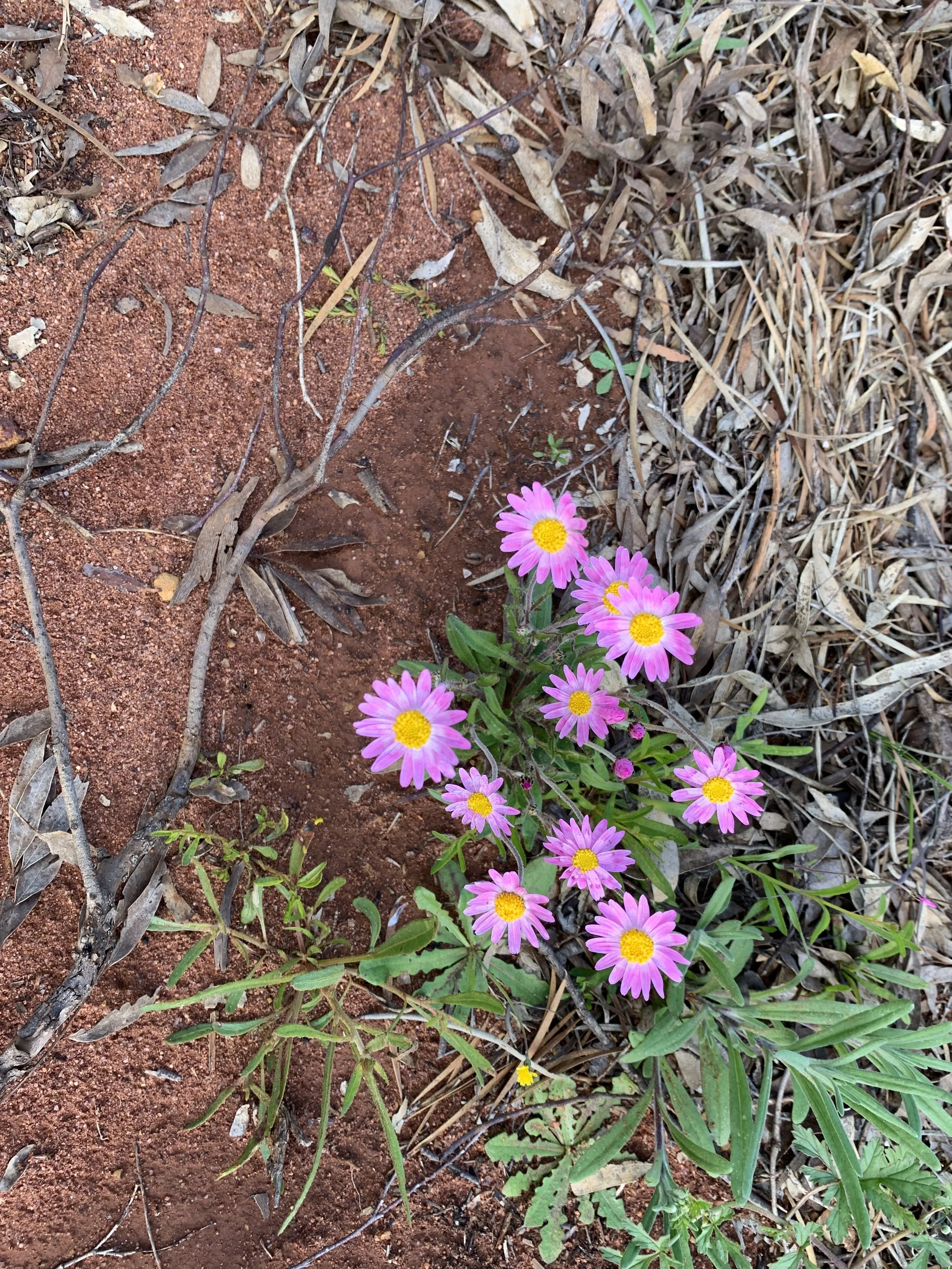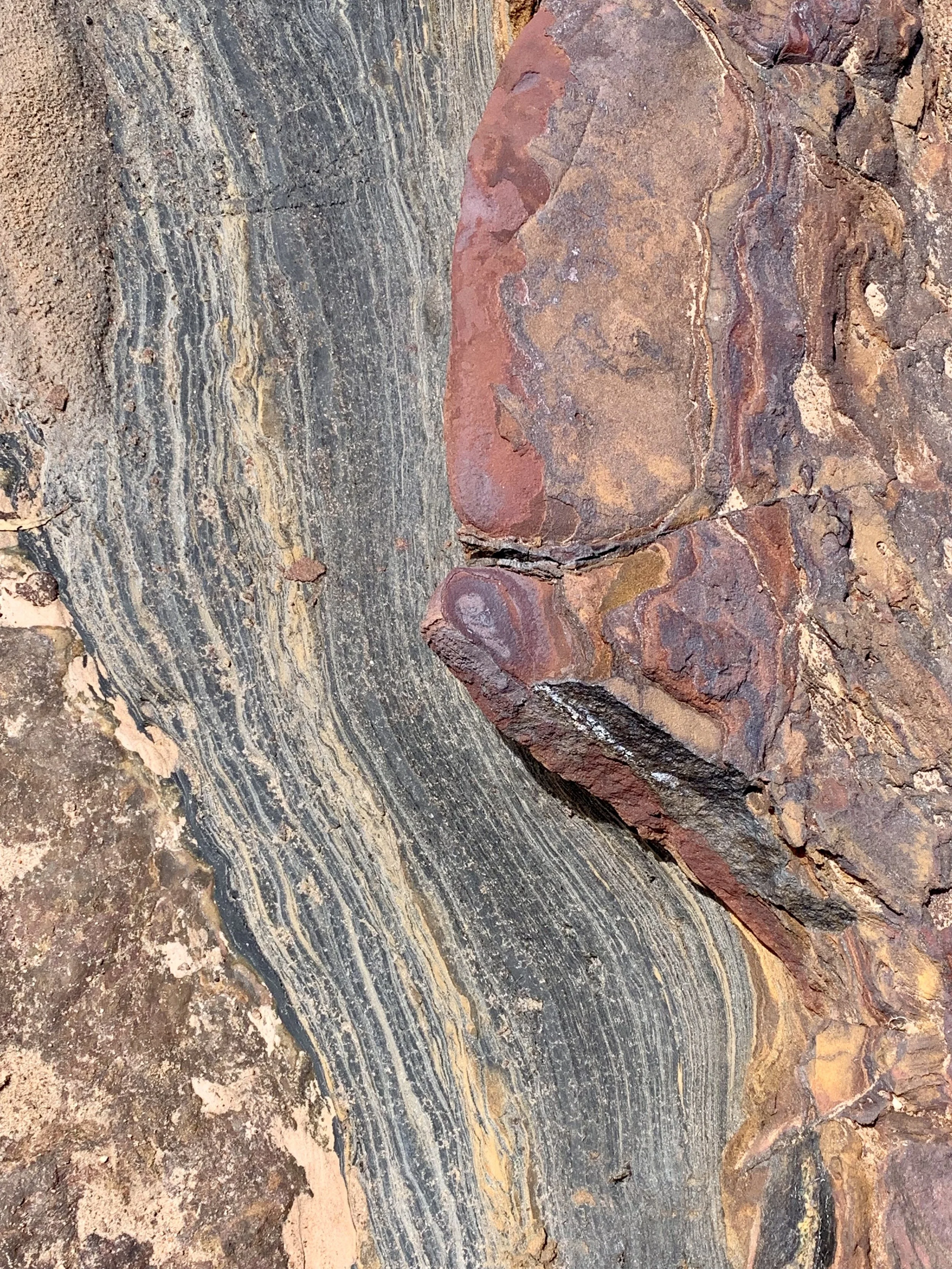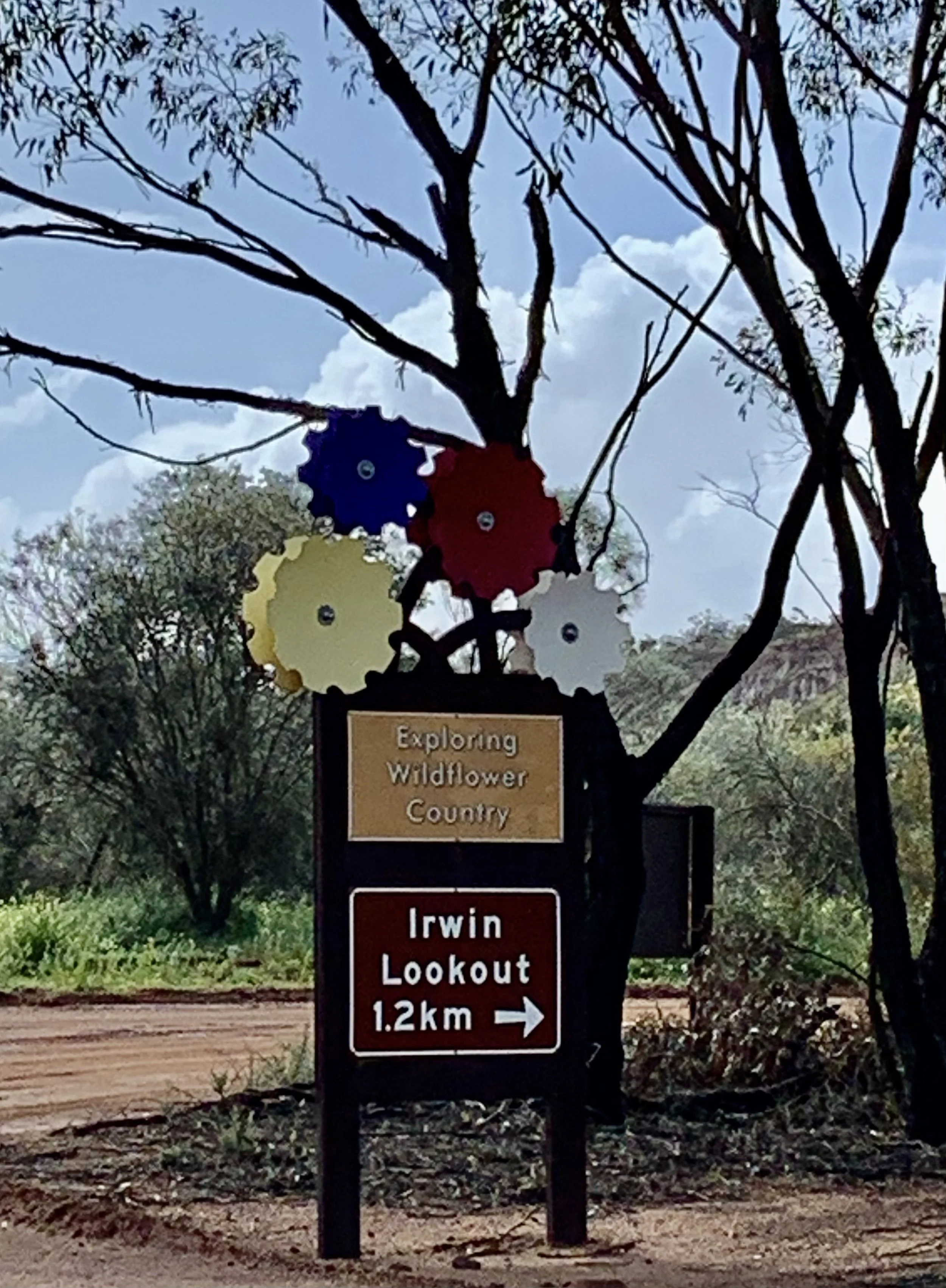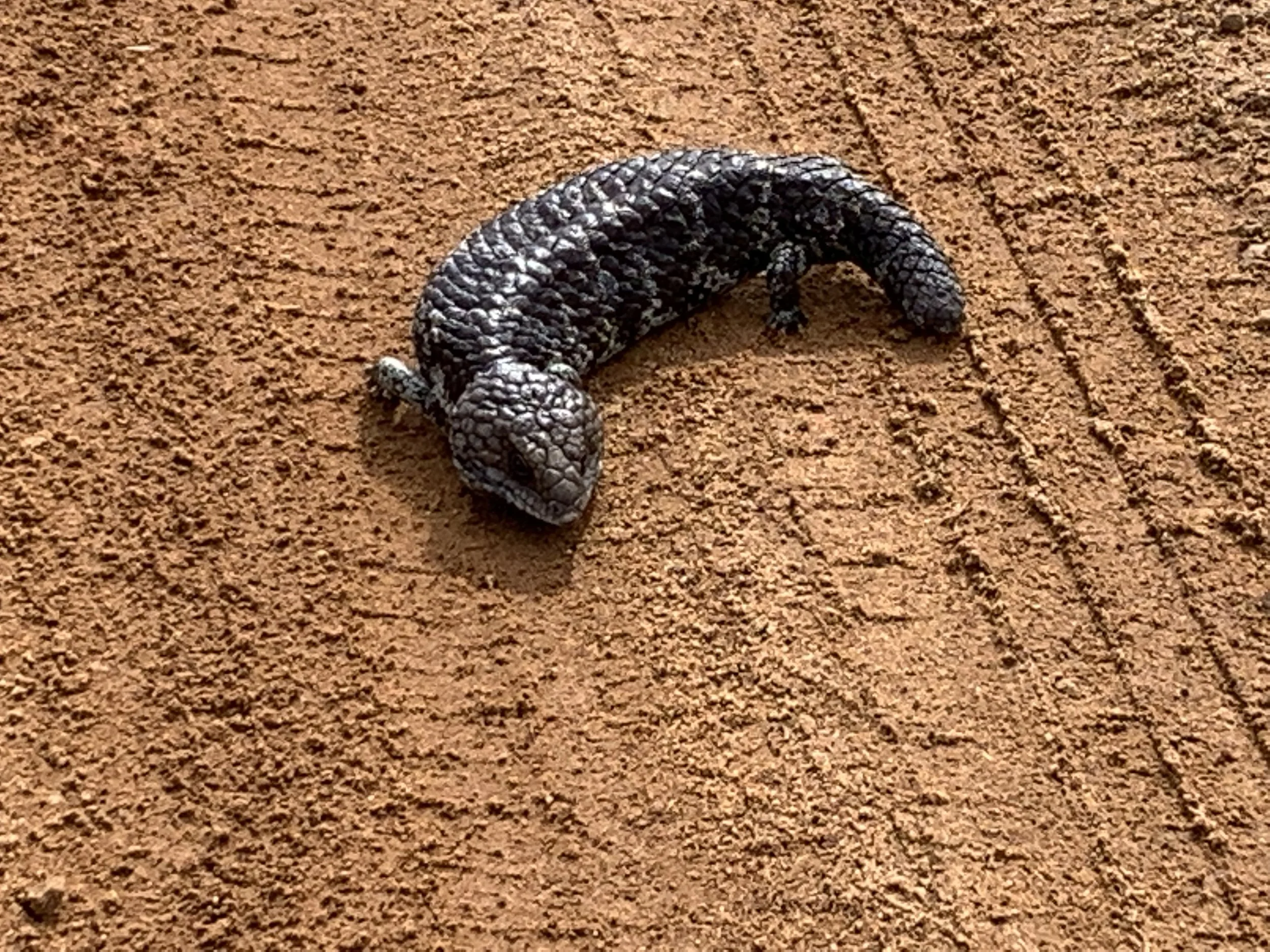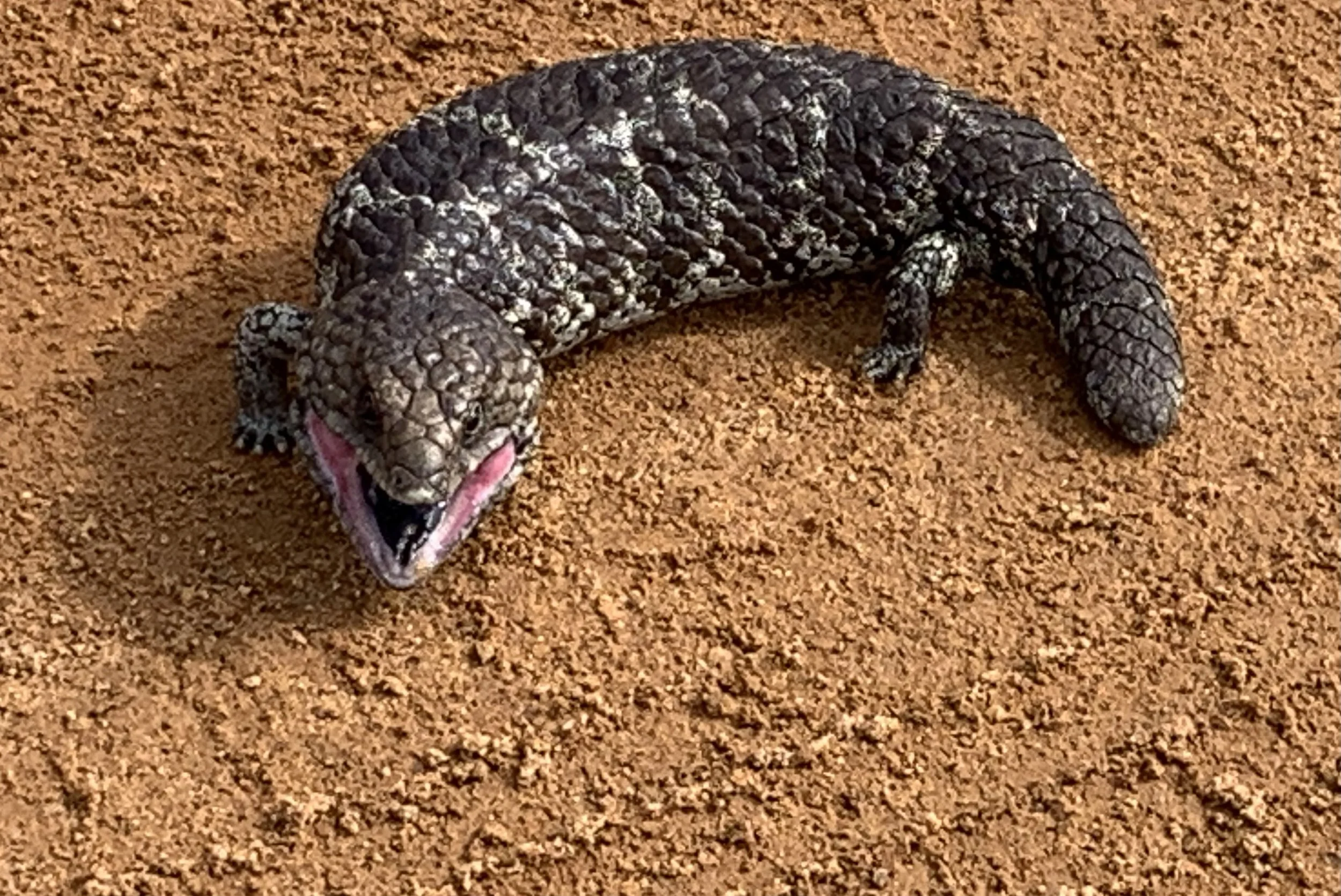Flowerfields
Around days 49 and 50 of the Big Trip, I began to ever-so-slightly lose the plot. Temperatures were discernibly below average; rainfall was well above; but it was an incessant blustery wind that wore us down most. My diary records that I took to wearing ear plugs long before bedtime, simply to dull the roaring. Was my agitation similar to that exhibited by inhabitants of the Rhône Valley when the Mistral blows?
In Jurien Bay information centre a calm, helpful man waded through my muddled mind to firm up where-to-next. He agreed with our choice of Coalseam Reserve for the wildflower experience. Further along the route, he suggested that we might prefer Monkey Mia to Exmouth, since scuba diving and similar high-octane activities were not on our agenda.
But first, Lesueur National Park, another wildflower hot-spot.
There is something wonderfully pleasing about carpets of wildflowers, heads gently bobbing in the breeze. In fact, it wasn’t quite like that: most flowers were dancing energetically in a brisk wind, such that I was concerned about blurring. The colours were predominantly pink – Sticky everlasting – and yellow – Myriocephalus guerinae (no common name), with a smattering of white and orange. In the photos below CS identifies Coalseam Reserve as the location, and LS is Lesueur National Park. My friend identified most of my flower pix, and contributed some I didn’t have.
Sticky everlasting (pink) and Myriocephalus guerinae (yellow), CS
Silver cassia (the orange ones)
Painted sundew (LS)
Firewood banksia (LS)
The structure of some blooms was extraordinary. Look at the banksia below: eye-catching and stunningly beautiful.
Couch honeypot, a banksia (LS)
Can anyone identify this plant, please? (LS)
Others were understated, or perhaps minimalist, yet still striking.
Catspaw (LS)
Golden conostylis (LS)
Winter bell (LS)
Flannel bush (CS)
Raspberry jam tree (CS)
One-sided Bottlebrush (LS)
Scarlet Featherflower (LS)
Pearl flower (LS)
Below is the coal seam that gave the Reserve its name. As you may remember, this is how geographical naming works in Australia. But presumably Coalseam Reserve could just as likely have been called Red Rock Reserve.
This delightfully flowery experience was not devoid of selfish idiots, unfortunately; such as the man who directed his wife to go plonk herself in the middle of one dense pink carpet, doubtless the perfect setting for a portrait of his love. She looked a tad sheepish, however, as she tried not to squash too many flower heads.
Let’s finish on a positive note, however. No silly humans on this yellow carpet!
Yellow Pompom heads (LS)
White Pompom head (LS)
Drumstick grasstree – wowsers! (LS)
Pincushion coneflower (LS), a fave
Serrated banksia leaves waving (LS)
Oh, I almost forgot this fella. Just before entering Lesueur National Park we came across this Bobtail lizard. He’s a slow-moving sleepyhead, a member of the blue-tongued skinks, and he didn’t take kindly to me encouraging him to get off the track. Numerous times on our travels I stood by lizards taking the sun, especially on bitumen surfaces, frantically waving at approaching 4x4s to cut their speed. Wildlife must take priority off-road in the outback.
‘I’m happy where I am!’
